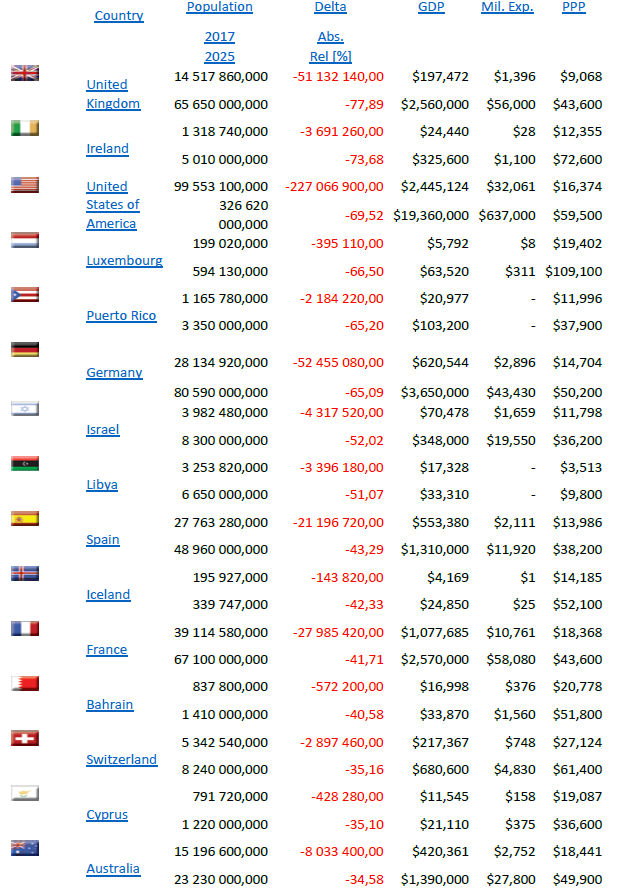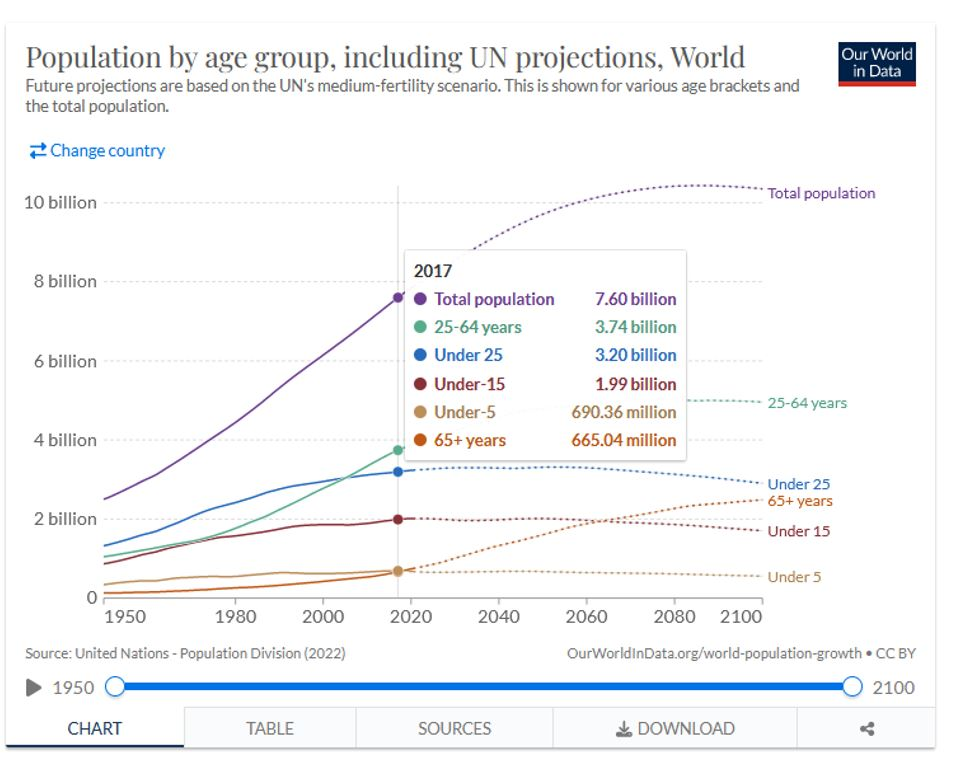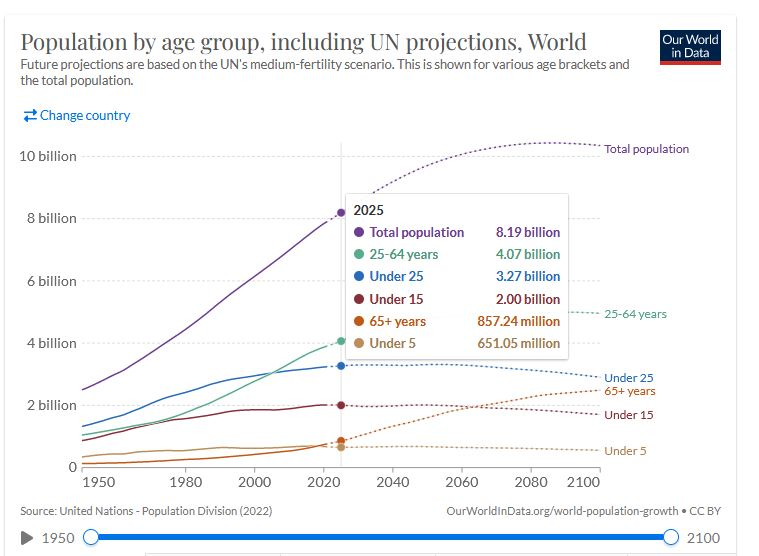Vienna 02/20/2023
Based on data from deagel.com I made a comparative population forecast for 183 countries around the world. The comparison is based on data from 2017 and the 2025 forecast. For more information on the source of this data, see the article: Deagel Forecast 2025: 70% US population decline and the collapse of the West. The data I used is more recent than that provided in the article via the link you provided. Therefore, there may be slight deviations.
Predictions, like predictions, may or may not come true. Forgive this truism, but I don’t want to scare anyone. Therefore, at the end of this article, I will make a different prediction for the population changes of our planet Earth. According to Deagel’s forecast, there will be a serious population decline within two years – mainly in the western civilization zone. It is best for me to present a list of the 15 most vulnerable countries:

Please note the red column I added which gives the absolute numbers of population decline and secondly the percentage of that decline. I used the latter criterion to arrange the order of these countries. The complete table for 183 countries can be downloaded here as an Excel file. The notes on the origin of this data at the end of the summary in the sheet “2017 vs 2025” are interesting. The second sheet “Global Sum” is a copy of the first from which I removed the reduction percentage to get the global sum of the projected population reduction for 2025. I got the result -478,790,641 fewer people in the world in 2025 compared to 2017.
I can hardly believe that in two years the number of inhabitants in Germany will drop by 52 million. No pandemic or nuclear war is included in the forecast.
On the other hand, I give you a completely different forecast for the development of the world’s population.


According to the UN, the population of our planet will increase by around 590 million between 2017 and 2025. Two predictions, and how different. Don’t be surprised if I quote two conflicting forecasts for the coming years. These are just predictions based on different assumptions – hence the different results. I would not advise anyone to plan their life based on such predictions.

Author of the article: Marek Wojcik
